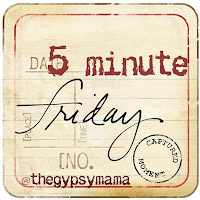
And one week later, this will be my first entry in the Parent’Hood synchro blog, joining through Joy Bennett’s blog:
a place for pondering life, faith, family


What can I say to help you see the man I know?
That he is funny and smart and loving?
Yes, that’s all true.
That he is opinionated and sometimes volatile, gestures wildly while watching sporting events and has been known to yell at the screen (and also at passing drivers when they cut him off)?
Yes, that’s all true, too.
But how do I find words to describe how tender he can be? How deeply he adores his children and grandchildren – and me, too?
How do I tell you how goofy he can be? Wearing silly hats and too-small-butterfly-wings just to make a 2-year-old giggle?
How can I describe his thoughtful wondering about the future, his careful allocation of resources so that we and our kids and our church and our missionary friends and the worthy people and projects that God sends our way can all be tended to, with love and care?
How can I possibly describe to you what a privilege it has been for me to mother his children, fold his laundry (most of the time!), admire his handiwork in the yard and at the kitchen sink and to see how kind he is, how very, very kind?
Is there any way to put into words how grateful I am to God for each and every day – even the horrible, terrible, very-bad ones – we’ve had together? Is there any way for me to describe to you the inexpressible joy it gives me to wish him a happy birthday this week? This marks number 49 that I’ve shared with him, 47 of those as his wife.
And this one?
Well, this one is number 70.
He has survived pleurisy, a kidney stone that had to be surgically removed, a major blood clot in his lung and prostate cancer. And he plays tennis – singles tennis! – once or twice a week with our son.
And there is no way that any one of you would ever guess his age without my putting it out here in black and white for you to marvel at.
No, there is just no way to tell you. There are no words.
Well.. maybe just one:
GIFT.
He is a gift to this world, a gift to our family and most especially a gift to me. Easily the best earthly one I’ve ever been given.
And I thank God for this gift every day that I breathe. Joining Lisa-Jo for the first time in several weeks. (This daily devotional posting has been so much fun for me – but wow! It’s tough sledding trying to add anything to that.) This, however, was one I just could not pass up. Join the ever-increasing crew over there and check out what others are saying in 5 minutes flat. I will gladly admit that this one took a few extra minutes.
Joining Lisa-Jo for the first time in several weeks. (This daily devotional posting has been so much fun for me – but wow! It’s tough sledding trying to add anything to that.) This, however, was one I just could not pass up. Join the ever-increasing crew over there and check out what others are saying in 5 minutes flat. I will gladly admit that this one took a few extra minutes.

I didn’t ask to be a mom. I didn’t have to work too hard to become a mom, either – at least in the biological sense of that word.
This essay was written at the invitation of Jennifer Dukes Lee and The High Calling. I am joining the community writing project at THC by signing on with Jennifer’s weekly meme. Ann Voskamp is also encouraging essays about love this month, so I’ll put it there as well. And with all the sisters at Jen Ferguson’s place, the soli deo sisterhood. And, at the end of the week, with Bonnie’s discussion on Love Unwrapped.
 A retired-part-time-pastor-learning-to-be-a-spiritual-director with a family I adore sensing an increasingly urgent call to write-my-life-down, to preserve my sanity and create some space to breathe. Read my complete profile.
A retired-part-time-pastor-learning-to-be-a-spiritual-director with a family I adore sensing an increasingly urgent call to write-my-life-down, to preserve my sanity and create some space to breathe. Read my complete profile.Sign up for *More Wondering. . . * a monthly personal letter from Diana to you, available only to email subscribers. As thanks, receive a copy of Living the Questions, an 8-chapter ebook wrestling with some of the hard questions of life and faith.





Copyright © 2025 · Prose on Genesis Framework · WordPress · Log in